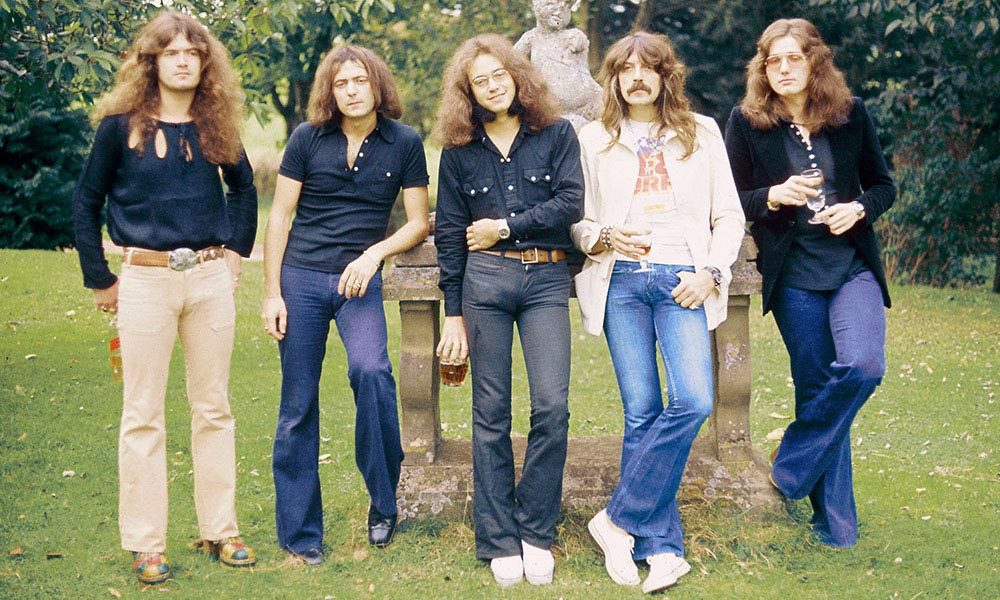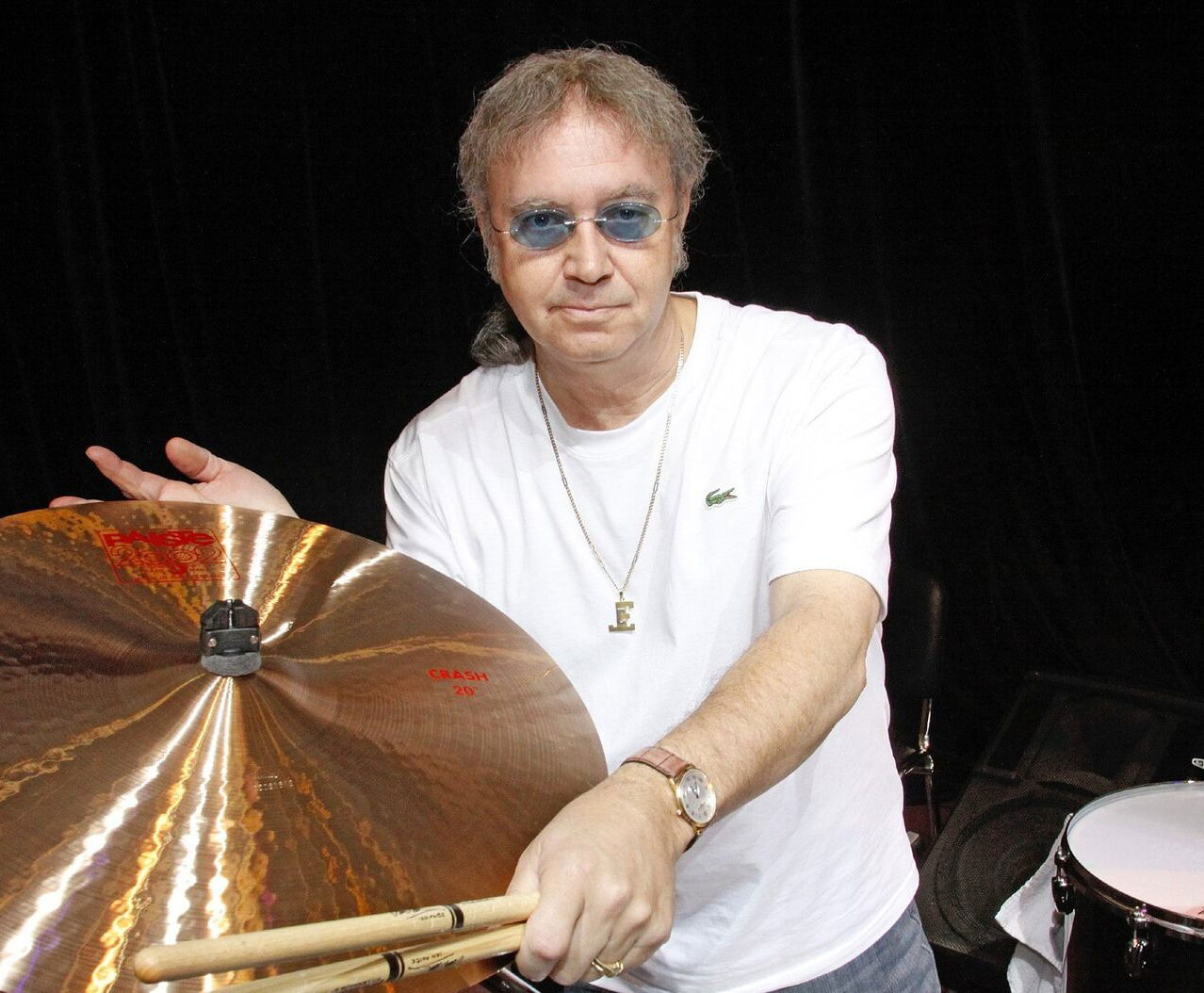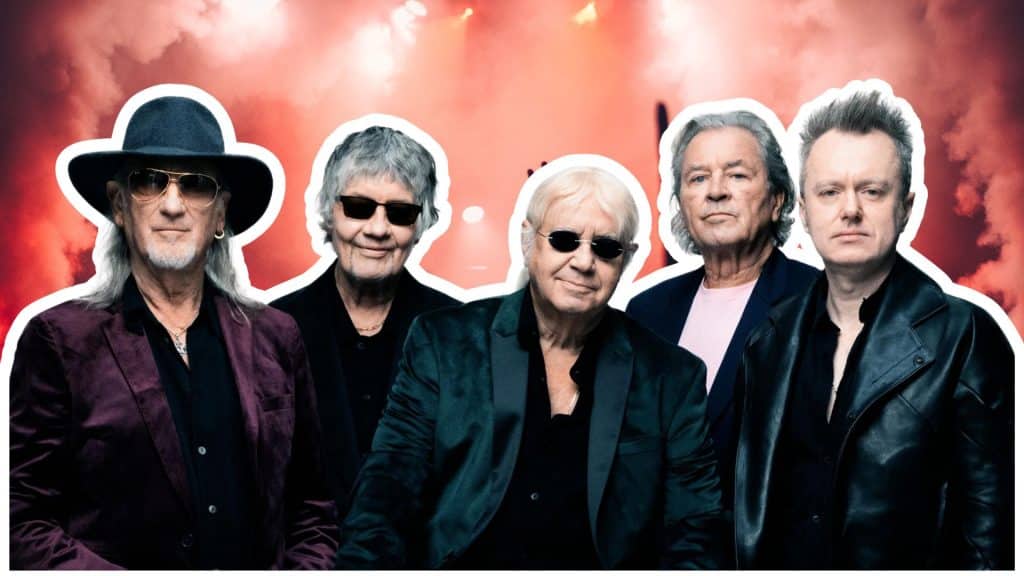Deep Purple, a name that stands out in rock history, has been a key player in music for over five decades.
Starting in Hertford, England, in 1968, they’ve helped shape hard rock and inspired many musicians.
This blog post looks into Deep Purple’s journey, exploring how they’ve changed, the skills of their members, and their long-lasting effect on rock music.
We’ll see how they started, changed, and grew over the years, making a unique sound that mixes heavy guitars with classical touches.
We’ll also examine each member’s contributions to the band, from strong singing to creative keyboard playing.
Through their important albums, exciting live shows, and ongoing creativity, Deep Purple has earned its place as a rock great. Join us as we explore the story of this well-known band.
The Formation and Evolution of Deep Purple

This part covers the band’s start in 1968 and rise to fame. It also examines key member changes and how they affected the band’s music style.
Early Days and Initial Lineup
Deep Purple came together in 1968 in Hertford, England. The band started with five members:
- Rod Evans (vocals)
- Ritchie Blackmore (guitar)
- Nick Simper (bass)
- Jon Lord (keyboards)
- Ian Paice (drums)
This group, known as the original lineup, began Deep Purple’s musical journey. They played a mix of rock and classical music, setting them apart from other bands of the time.
Key Lineup Changes and Their Impact
In 1969, the band went through big changes. Rod Evans and Nick Simper left, making way for two new members:
- Ian Gillan (vocals)
- Roger Glover (bass)
This new group, called the “Mark II” lineup, brought a fresh sound to Deep Purple. With these members, the band made some of their most popular albums:
- “Deep Purple in Rock” (1970): This album showed off their harder rock style.
- “Machine Head” (1972): It had its famous song “Smoke on the Water.”
The “Mark II” lineup helped Deep Purple become one of the biggest rock bands of the 1970s. Their music got louder and more intense, which many fans loved.
These changes in members were important for Deep Purple’s growth. Each new person brought different skills and ideas, helping the band’s music change over time.
Individual Achievements of Band Members
Here, we focus on what each main member added to Deep Purple’s sound, showing their skills and notable work in and out of the band.
1. Ritchie Blackmore

Ritchie Blackmore was a founding member of Deep Purple and a highly skilled guitarist. His playing style blended classical influences with heavy rock and was key to shaping the band’s sound.
- Birthplace: Weston-super-Mare, England
- Years Active with Deep Purple: 1968-1975, 1984-1993
- Notable Contributions: “Smoke on the Water” guitar riff, “Highway Star
2. Jon Lord

Jon Lord was Deep Purple’s keyboardist, known for his classical training and innovative use of the Hammond organ in rock music. His organ playing was as prominent as the guitar in many Deep Purple songs.
- Birthplace: Leicester, England
- Years Active with Deep Purple: 1968-1976, 1984-2002
- Notable Contributions: “Child in Time” organ solo, “Concerto for Group and Orchestra”
3. Ian Gillan

Ian Gillan was the lead vocalist during Deep Purple’s most successful period. His powerful voice and wide range, including his trademark screams, became a defining feature of the band’s sound.
- Birthplace: London, England
- Years Active with Deep Purple: 1969-1973, 1984-1989, 1992-present
- Notable Contributions: Vocals on “Smoke on the Water,” “Child in Time”
4. Ian Paice

Ian Paice is Deep Purple’s drummer and the only member to appear on every album. His fast, precise drumming style has been a constant in the band’s changing lineup.
- Birthplace: Nottingham, England
- Years Active with Deep Purple: 1968-present
- Notable Contributions: Drum solos in live performances and rhythms on all Deep Purple albums.
5. Roger Glover

Roger Glover is Deep Purple’s bassist and a key songwriter. His solid bass-playing and songwriting skills have been crucial to the band’s success.
- Birthplace: Brecon, Wales
- Years Active with Deep Purple: 1969-1973, 1984-present
- Notable Contributions: Co-wrote “Smoke on the Water,” producer for many Deep Purple albums.
Contributions to Rock Music
This part shows how Deep Purple helped create hard rock and early metal. We look at their big albums, famous live shows, and how they inspired other bands. It reveals the band’s key role in shaping rock music’s future.
Defining Hard Rock and Heavy Metal
Deep Purple played a big role in shaping hard rock and early heavy metal. Their music helped set the standard for these styles.
- “In Rock” (1970):
- This album marked Deep Purple’s shift to a harder sound.
- It featured loud, fast guitar work and powerful vocals.
- Songs like “Speed King” showed a new level of intensity in rock music.
- “Fireball” (1971):
- The title track used new recording methods to create a unique sound.
- This album further developed Deep Purple’s heavy style.
- “Machine Head” (1972):
- It is often seen as Deep Purple’s best work.
- Includes “Smoke on the Water,” one of rock’s most famous songs.
- The album’s overall sound influenced many future rock and metal bands.
Many later bands, like Iron Maiden and Metallica, have said Deep Purple inspired them. The band’s mix of loud guitars, strong vocals, and skilled musicianship set a new standard in rock music.
Iconic Live Performances
Deep Purple became known for their exciting live shows. They often changed their songs on stage, making each performance special.
- “Made in Japan” (1972):
- This live album is seen as one of the best in rock history.
- It shows how good the band was at playing live.
- Songs like “Space Truckin'” were much longer live, showing off the band’s skills.
- Memorable performances:
- California Jam (1974): The band played to over 200,000 people.
- Concerts in 1985 and 1987 at Knebworth House in England were huge events.
- Their tours in the 1970s set attendance records in many countries.
Awards and Recognitions
Many awards have recognized Deep Purple’s impact on music over the years.
- Rock and Roll Hall of Fame:
- The band was inducted in 2016.
- This honor recognizes their long-lasting influence on rock music.
- World Music Awards:
- Deep Purple received the Legend Award in 2008.
- This award was for their contributions to world music.
- Other honors:
- Ivor Novello Award for International Achievement (2019).
- Inducted into the UK Music Hall of Fame (2016).
These awards show Deep Purple’s importance to rock music over many years. Their influence continues to be felt in modern rock and metal.
Legacy of Deep Purple Band
The last part explores Deep Purple’s lasting popularity, recent work, and ongoing role in rock music, showing how they stay relevant after five decades.
Long-Lasting Career
Deep Purple was formed in 1968 in Hertford, England. Their 1970 album “In Rock” marked a shift to a harder sound, leading to worldwide fame with 1972’s “Machine Head.”
After a breakup in 1976, they reformed in 1984. The band saw significant changes when Ritchie Blackmore left in 1993, and Steve Morse joined in 1994.
Jon Lord’s retirement in 2002 and Simon McBride becoming the new guitarist in 2022 were other key moments.
The band’s sound evolved from a mix of rock and classical in the late 1960s to a defining hard rock style in the early 1970s. Post-reunion, they developed a more polished rock sound, blending their classic style with new ideas.
Recent Developments
Steve Morse’s tenure as lead guitarist from 1994 to 2022 was a stable period for the band. Key albums during this time included “Purpendicular” (1996) and “Rapture of the Deep” (2005).
Morse stepped down in July 2022, with Simon McBride joining as a touring member in March 2022 before becoming a full-time member in September.
Modern Contributions and Projects
Recent albums:
- “Whoosh!” (2020): Peaked at #4 on UK Albums Chart, top 10 in 16 countries
- “Turning to Crime” (2021): First covers album featuring songs from the 1960s to 1980s
Global health situations in 2020-2021 affected the band’s touring schedule. They returned to live shows in 2022, visiting 32 countries, and continue their world tour in 2023.
Deep Purple’s impact on rock music remains significant. They’ve sold over 100 million records globally and were inducted into the Rock and Roll Hall of Fame in 2016.
Their influence on hard rock and heavy metal genres continues to be recognized. After five decades, Deep Purple remains a rock pioneer, still creating music and performing live.
Final Thoughts
Deep Purple’s journey through rock history shows their musical skill and lasting appeal. From their early days mixing rock and classical sounds to their powerful albums of the 1970s and beyond, they’ve always pushed rock music forward.
Each member has brought special talents to the band, creating a strong and complex sound. Their impact goes far beyond their music, inspiring many rock and metal artists.
Even after more than 50 years, Deep Purple continues to create, perform, and excite fans worldwide.
Their mark on music is not just in what they’ve done before but also in what they continue to do for rock music.
As they continue to tour and make new music, Deep Purple shows that true rock greats don’t fade away – they change, adapt, and keep the music alive.





















